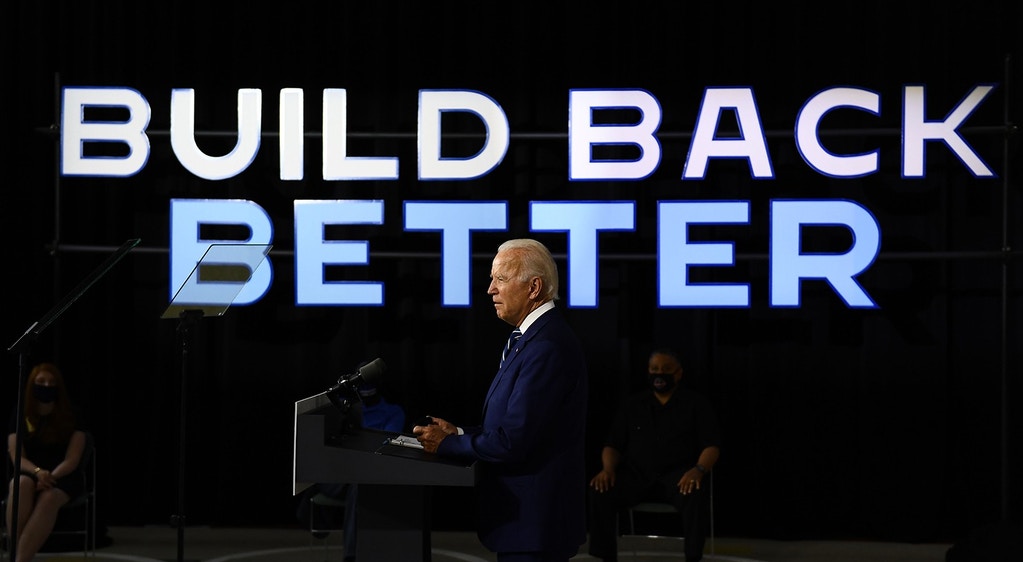Tue Sep 20, 2022
Tuesday / September 20
Biden's Taiwan vow
US President Joe Biden said American forces would defend Taiwan in the event of a mainland Chinese invasion.
Asked in a CBS 60 Minutes interview broadcast on Sunday whether US forces would defend the democratically governed island claimed by China, he replied: "Yes, if in fact, there was an unprecedented attack."
Asked to clarify if he meant that unlike in Ukraine, U.S. forces - American men and women - would defend Taiwan in the event of a Chinese invasion, Biden replied: "Yes."
Asked to comment, a White House spokesperson said U.S. policy towards Taiwan had not changed. "The president has said this before, including in Tokyo earlier this year. He also made clear then that our Taiwan policy hasn't changed. That remains true," the spokesperson said.
Beijing government's foreign ministry spokeswoman Mao Ning told a regular briefing in Beijing that Biden's comments sent a "seriously wrong signal" to separatist forces for Taiwan independence.
China was "strongly dissatisfied and resolutely opposed" to Biden's comments and had lodged a formal complaint over it, she said, warning that China reserves the right to take all necessary measures to counter separatism.
Taiwan's foreign ministry expressed its thanks to Biden for his reaffirming of the "U.S. government's rock-solid security commitment to Taiwan". Taiwan will continue to strengthen its self-defense capabilities and deepen the close security partnership between Taiwan and the United States, the ministry said.
US-Pacific relations
US Secretary of State Antony Blinken will host the Partners in the Blue Pacific (PBP) countries on Thursday with the aim of better coordinating assistance to the region in the face of competition from China, a White House official said.
The PBP group was formed in June, and includes the United States, Australia, Japan, New Zealand and the United Kingdom. India has an observer status. White House Indo-Pacific coordinator Kurt Campbell said a few other countries would join too.
The Blue Pacific event, on the sidelines of the UN General Assembly in New York, will come ahead of a September 28-29 summit U.S. President Joe Biden plans to host with Pacific island leaders.
US-China competition for influence in the Pacific islands has intensified this year after China signed a security agreement with the Solomon Islands, prompting warnings of a militarization of the region.
Awaiting FOMC
The two-day Federal Open Market Committee (FOMC) meeting of the US Federal Reserve is set begin on Tuesday. The committee is expected to announce a 75-bps interest rate hike on Wednesday. Many central bank watchers do not rule out a 100-bps increase.
In the previous policy announcement, the Central Bank raised the rates by 75 bps.
Wall Street
Wall Street's main indexes ended higher on Monday ahead of this week's policy meeting at the US Federal Reserve.
The Dow Jones Industrial Average rose 197.26 points, or 0.64%, to 31,019.68. The S&P 500 gained 26.56 points, or 0.69%, to 3,899.89. The Nasdaq Composite added 86.62 points, or 0.76%, to 11,535.02.
A majority of the S&P 500 sectors rose.
The S&P 500 and the Nasdaq rebounded from logging their worst weekly percentage drop since June on Friday.
The yield on the 10-year Treasury note notched its highest close in a decade Monday, with traders selling bonds. At 3.489%, the 10-year yield ended at a level last seen in 2011. Earlier in the day, it briefly traded above 3.5%. Yields rise as bond prices fall.
Two-year yields rose as well on Monday, finishing at 3.946%—a fifteen-year high within little distance of the 4% threshold.
More dollars to Ukraine
US lawmakers will vote next week on whether to add $12 billion in US aid for Ukraine to the budget, Senate Majority Leader Chuck Schumer, said Sunday.
“Ukraine depends on our aid. And now that they have begun to really push back the Russians, more aid at this point is crucial,” Schumer said.
Additionally, Congress faces an end-of-the-month deadline to pass a stopgap spending bill, called a continuing resolution, that would keep the government from shutting down until mid-December, Schumer noted.
